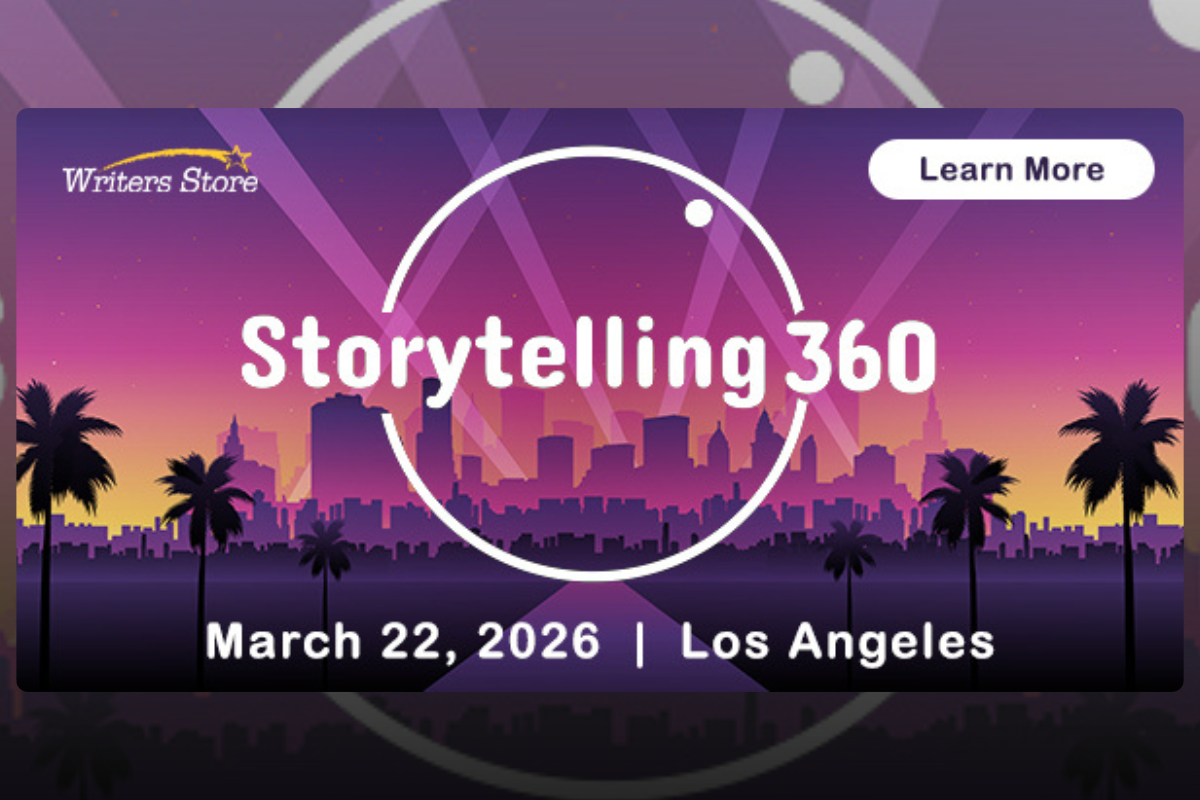Script Interview: Adam Leon, Writer/Director of ‘Gimme The Loot’
Like most directors shooting their first full-length feature, Adam Leon would have been happy just to have a finished film. To be able to look back and say, “I did…
Like most directors shooting their first full-length feature, Adam Leon would have been happy just to have a finished film. To be able to look back and say, “I did that.” But that’s not what the film gods had in store for this writer-director from New York City. The last year or so since wrapping production has been a whirlwind for Adam and the rest of the Gimme The Loot cast and crew as the film, as the film went from winning the Grand Jury Prize at SXSW (2012), to getting named an Official Selection for The Cannes Film Festival and being picked for distribution by IFC.
Last week, Gimme The Loot opened in New York at the IFC Center in Greenwich Village to sold out shows and, as of Friday, March 29th, will be available across a multitude of VOD services and will be opening in L.A. at the Landmark Nuart Theater.
Not bad for your first go round, right?
Adam was nice enough to take a few minutes away from the PR deluge that his life has become to sit down and talk about Gimme The Loot, his process as a writer, and what’s next on the horizon for him.
SCRIPT: Thanks for talking to us today, Adam. First, congratulations on all of the success!
AL: Thank you so much. It’s been quite an interesting year.
SCRIPT: Let’s jump right into Gimme The Loot. How would you describe it to our readers who may not have heard of it before right now?
AL: Well, in logline terms it’s about two graffiti writers from the Bronx who go on this adventure over the course of a couple summer days, but for us it’s really this kind of fun, New York story. It follows these kids from sort of a tougher neighborhood, but presents them in a way that’s a little bit more fun and more about the joys of youth than you might normally see in that world.
SCRIPT: And that atmosphere really came through. When I was watching Gimme The Loot, it really felt like a “New York” film. The story had a definite vibrancy and kinetic energy to it. Is that something that came out during filming, or was it there from the beginning with the script?
AL: It was very much a directive that I had for myself from the beginning. I wanted to capture the energy and spirit of New York… a New York that I feel still exists but hasn’t really been portrayed as much recently in television and film. One that’s a little bit dirtier, a little bit wilder, and I just hadn’t seen that as much and I thought that… there was still that kind of throwback New York, but it’s still a modern New York too, and so that was one of the really key elements.
That was something that I felt went really well with the characters and with the tone, and so I was trying to capture the idea that I wanted the movie to move really fast, and I wanted the script to read really fast and have an adventurous spirit.
SCRIPT: It definitely comes through. And those great locations you found. That had to influence your process, didn’t it?
AL: I was definitely scouting while I wrote. A lot of the writing process was also me, at night, rereading what I had written and doing notes; waking up in the morning and going somewhere in the city and walking around and kind of reflecting and thinking and exploring the city; coming back, you know, after lunch and writing. Putting in the notes I’d written the night before and then sort of adding some of the elements that I’d thought about that morning and then moving the script along.
[That process] was especially true in the rewriting phase.
SCRIPT: Speaking of the script, I’m always fascinated by how the creative process varies from writer to writer. How long was your journey from initial concept to a final draft?
AL: [Laughs] I had an idea with these two main characters that I started to write, and I got a couple months into that, and the script just wasn’t right. The story wasn’t right, but the characters were. I liked the characters a lot and so, I had had this other idea about the Mets home run apple and had sort of shelved it, so I revisited it and I said, “You know, that is the right idea for this.” And I started writing that.
And so, from the point where I had the idea for the story and the characters and was writing Gimme The Loot it was about 3 or 4 months before I had a first draft that I felt comfortable enough showing to some people who I wanted to be on the team. And then it was a year and a half from that moment until we shot. And I was writing every day.
SCRIPT: So you’re a fan of the rewrite then?
AL: I’m a big believer in rewriting, and I always try to make everything better and think about new things. A lot of the issue [with Gimme The Loot] was the exposition. In the first draft, I had maybe twenty pages of exposition, and that’s way too much. Eventually we got it to the point where I think our story is set and our characters are set about six minutes into the movie. Then once the actors came on it was a lot of rewriting, you know, as we would find a kid that was great but was maybe a little bit different than the character that I had written, and so we were like, we should rewrite it for this kid because he’s great. Or, I really like this person but we don’t really have a role for them. What if we wrote this little scene that involves them in it and so as the cast came on.
SCRIPT: And so the script continued to grow organically while you were casting?
AL: Yes. It definitely grew while we were casting. We really kind of knew that was going to happen because we just wanted to find great kids and – the leads were the leads – but after that we just wanted to find great kids that were charismatic and kind of interesting, and make them a part of the project. And then, there were things like – we cast this guy I knew named Nico. I knew him and I wanted him to be in the movie because his look was so great, and then, the more I worked with him, the more I was just very taken with his abilities as a comic actor, and so I just kept extending that role. His big scene later in the movie – his lock picking scene –I wrote that 10 days before we shot. And then, of course, we’re always rewriting on set as well. But we came in very prepared by the time we were shooting. We had done a lot of rehearsal. The script was fully formed and that allowed us to be a little bit looser if we needed to be.
SCRIPT: Do you have any tips that work well for you that you could share with Script’s readers?
AL: I rarely start writing the first scene first. I usually loop back, so I’ll start somewhere that I’m comfortable starting, with a scene I’m ready to write, and then I’ll go from there… and then sort of make my way around and back again.
SCRIPT: That’s a really great piece of insight. And that helps keep you from getting bogged down creatively with a scene you haven’t quite cracked yet?
AL: Definitely. I think you can sort of figure out a way, so sometimes when I don’t feel like I’ve cracked a scene yet, I feel like if I keep writing, I’m going to learn more about my characters. Maybe there’s a reason I can’t crack that scene. Maybe it shouldn’t be there, or maybe something that I write later on is a line that actually should be a recall, and I can put it in earlier.
I think it’s really important to wake up and move the project along every single day. I heard J.K. Rowling talk about this recently; about how it’s not all fairies and inspiration coming down. So you need to keep moving forward. But if there is something that you just feel you aren’t ready to tackle, you can just sort of go back to it. It’s always going to be right there.
SCRIPT: Jumping back to Gimme The Loot, one of the things that really jumps out when you’re watching is how you work real people in as extras in your scenes. Especially that one woman at the flower shop!
AL: Yes! One of our producers said we could have cast for three months and not found a woman as perfect as that.
SCRIPT: Absolutely. She was perfect! Was going more towards that guerilla style of filming necessitated by your budget or was that a creative choice? Or both?
AL: I think that one of the reasons that I really was so passionate about making this movie was… I think this is a story that should be told on a very small budget. It would actually be worse if we had five million dollars. It was also a story that I thought should be told by real people and not professional actors. And I felt like it was a story that would very much fit a first-time filmmaker. So it was lights going off in my head. You’ve got to go and make this, because that idea doesn’t come along that often.
You know, I’ve written other scripts but they were scripts that you would want 30 million for. I’ve seen people try to make five million dollar movies for one hundred grand, and you just can’t do it well. But this story should be told at this level, in this way. I really felt that. And so the answer is both, but it really was an aesthetic decision that fit within the constraints of our budget.
SCRIPT: You’re just now hitting the beginning of the end for Gimme The Loot. Do you have your next project in your sights?
AL: I’m working on a few things. I have a script that I was working on, but I kind of put it aside in December purposefully, and I’m really excited to get back to that.
SCRIPT: I can’t wait to see what you do next. To wrap up, you’ve gone through this extraordinary process over the last year or so with Gimme The Loot. Is there one moment for you that stands out from all the others?
AL: I think that, to be kind of corny, the thing that has been the most exciting and the most fulfilling has been the making of the movie. Saying, “We did this. We went out there and shot this.” There’s nothing in my life that can compare to that.
I’d say that in terms of things that have happened to the film since… being an official selection at Cannes was really special; really just kind of beyond our dreams. We didn’t ever think that was going to be a possibility and to have that happen was so cool. And because we weren’t expecting it, we were able to go into it without any pressure or expectations and just enjoy it. Just have fun with it.
Related Articles:
- Balls of Steel: ‘American Pickers’ Road to TV with Show Creator Mike Wolfe Part 1
- Understanding Comedy Writing with Writer David Misch
- Good in a Room: The Pitch Meeting Structure Used by Hollywood Pros
Tools to Help:
- Screenwriters World Conference
- Beginning Television Writing at Screenwriters University
- Telling and Selling the TV Pilot Script
Brad Johnson is a screenwriter and producer who has placed in multiple competitions including Final Draft Big Break and the Walt Disney Television Writing Program. He has served as a judge for the Nashville Film Festival and the NYC Midnight Short Screenplay Challenge, and worked as a script consultant through his website, ReadWatchWrite.com. You can follow Brad on Twitter @RWWFilm.







